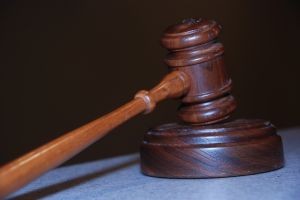 During the process of a criminal case, the trial court judge makes a number of different rulings, all of which may be appealed by a defendant. There are several different types of appeals. The most common type of appeal is a direct appeal, which is an appeal to the Appeals Court following a conviction after trial. A defendant has a statutory right to a direct appeal, meaning he has a right to file and be heard on the issues raised in the appeal. In addition to direct appeals, there are several other vehicles for appealing a decision made by a trial court judge, including interlocutory appeals – i.e. appeals made before a case goes to trial. Defendants are only permitted to file interlocutory appeals in limited circumstances, which typically involve the denial of a motion to suppress evidence.
During the process of a criminal case, the trial court judge makes a number of different rulings, all of which may be appealed by a defendant. There are several different types of appeals. The most common type of appeal is a direct appeal, which is an appeal to the Appeals Court following a conviction after trial. A defendant has a statutory right to a direct appeal, meaning he has a right to file and be heard on the issues raised in the appeal. In addition to direct appeals, there are several other vehicles for appealing a decision made by a trial court judge, including interlocutory appeals – i.e. appeals made before a case goes to trial. Defendants are only permitted to file interlocutory appeals in limited circumstances, which typically involve the denial of a motion to suppress evidence.
In addition to direct appeals and interlocutory appeals, appeals may also be made pursuant to G. L. c. 211, § 3. Under this statute, the Supreme Judicial Court has “general superintendence of all courts of inferior jurisdiction to correct and prevent errors and abuses therein if no other remedy is expressly provided.” Relief under G. L. c. 211, § 3 is discretionary, meaning the SJC is not required to accept a request for review under the statute. The Court has repeatedly stated that it will grant relief under G.L. c. 211, § 3, “[o]nly in the most exceptional circumstances.” For the Court to accept such an appeal for review, a defendant must demonstrate not only that a substantive right is at stake, but also that the normal process of direct appellate review will be inadequate to vindicate that right, and therefore there is no other recourse but to invoke the Court’s special powers.
On June 30, 2015, the SJC accepted a G. L. c. 211, § 3 petition filed by a defendant with a case in the Holyoke District Court. Specifically, the petition addressed a new order issued by the Holyoke District Court relating to G. L. c. 278, § 18. This statute establishes the right of defendants with cases in District Court to withdraw their pleas if the judge seeks to impose a sentence that exceeds the defendant’s recommendation. In other words, if a defendant facing charges in District Court chooses to plead guilty and resolve his case short of trial and the judge exceeds the sentence requested by the defendant, the defendant has an absolute right to withdraw his plea and take the case to trial. This is called a “defense capped” plea because the defendant has the right to choose the maximum penalty that he will accept. The new order states that a defendant will not have the right to withdraw his plea if the judge exceeds his recommended sentence when the plea is tendered on the trial date, thereby stripping defendants of the right to present a defense-capped plea on the date of trial. In addition to accepting the petition for review, the
SJC also issued an order staying the implementation of the order pending the Court’s decision.Although the stay of the order only applies to the Holyoke District Court, the SJC’s decision to review the order has significant implications in all District Courts in which judges utilize this type of procedure. The order conflicts with the clear language of G.L. c. 278, § 18, and the practice of cutting off defendant-capped pleas prior to the trial date unconstitutionally burdens the defendant’s rights to due process and to a trial by coercing defendants to plead guilty at an earlier stage in the proceedings, therefore the fact that the SJC has chosen to review the order may be sufficient to persuade other District Court judges engaging in similar conduct to stop. Moreover, in the event that the SJC decides that the policy is unconstitutional, it will put an end to any such practice across the state.
If you or a loved one is facing criminal charges and are weighing the pros and cons of resolving your case with a plea, you are in need of a skilled attorney who is up to date on all new developments in the law. Attorney Daniel Cappetta is such an attorney – he is closely following the progress of this matter and will make sure that your constitutional rights are protected and preserved. Call him for a free consultation today.
 Massachusetts Criminal Lawyer Blog
Massachusetts Criminal Lawyer Blog

